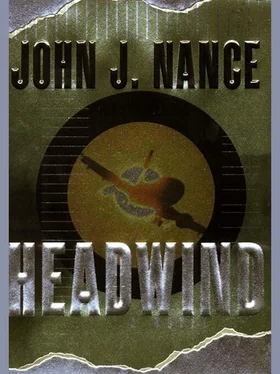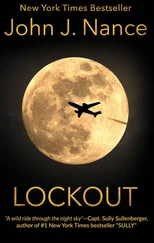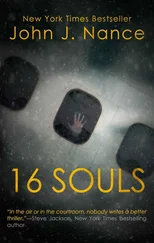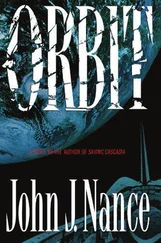He and Sherry Lincoln had spent the hours before the appointment trying to charter a smaller transoceanic business jet to carry the President to New York, but the effort had failed. No one could react on such short notice to a new customer. The only alternative, Sherry was told, involved deadheading a long-range Gulfstream in from Chicago at incredible cost, but even then, the earliest wheels-up time out of Dublin would be late Thursday morning.
“I’m out of tricks,” Jay told John Harris at a quarter past ten. “We either get the damn thing quashed here, or fly you out on the 737.”
“The crew’s still willing?” the President asked.
Jay nodded. “I talked to them fifteen minutes ago. They’re rested and can leave whenever we decide to. It’s risky, of course. They might have to turn around if the headwinds are too strong, and there’s always the chance they might have to divert to Iceland or Canada, which then opens up an entirely new series of challenges.”
John Harris was silent for nearly a minute before shaking his head and sighing. “No, Jay, I want to wait right here, I think. I like your man Garrity, and from what he was saying… and the fact that I would really rather attack this head-on than run… perhaps I should simply send those fellows back to Frankfurt. I’ll get plenty of protection here.”
“We don’t know that, John! We don’t even have a court or a judge yet.”
“Nonetheless, I know what did and did not happen in the Oval, and I trust the Irish judge to sort it out and give me an adequate opportunity to prove that the tape is a fake.”
Jay stood and stared at the President for a few uncomfortable seconds as John Harris sat on the side of his bed, keeping his eyes on the carpet.
“John, it’s your money, but I want to keep those guys on standby until we know what’s happening.”
Harris nodded slowly. “Very well. But my intention is not to use them.”
The offices of Seamus Dunham of Dunham and McBride, the firm of solicitors Jay had retained on Michael Garrity’s recommendation, were in a working-class neighborhood in a nondescript building several miles from the heart of town.
Michael Garrity was waiting as Jay, Sherry, and the President assembled in the small, somewhat shabby conference room and Matt Ward stood guard in the hallway.
When the introductions were complete, Garrity outlined the case against John Harris once more, with emphasis on the alleged existence of the video. He was surprised to hear that Campbell had agreed to deliver a copy to Jay by evening.
Seamus Dunham took over discussion of the strategy when a phone call pulled Garrity away. The barrister returned several minutes later, ashen-faced and exceptionally quiet. He slipped into a chair at the end of the table, saying nothing, but noticed by them all.
“Michael?” Seamus Dunham queried. “Are you ill?”
Garrity glanced up and tried to smile.
“That’s a good word for it, I think.”
“What’s wrong?” Jay asked from the far corner of the table.
“That was Stuart Campbell. We have a judge.”
“How did he know to call here?” Jay asked.
“Campbell apparently has every phone number in the Western world,” Garrity replied. “It’s the High Court, which I expected. The time is ten A.M. tomorrow morning in the Four Courts complex.”
“And the judge?” Dunham prompted.
Garrity drummed his fingers against his chin for a few seconds before answering, his eyes on the opposite wall. “I truly did not know he was on standby this weekend. Never thought about it, not that I could have changed anything…”
“What are you talking about?” Jay asked, a bit too sharply.
Garrity looked up at Jay. “Only the worst judge we could get for a case like this. Mr. Justice O’Connell.” He watched Seamus Dunham’s jaw drop slightly.
“Mr. Justice O’Connell,” Michael Garrity continued, “who has no love for the United States, and no tolerance for anyone except God, whom he rather imagines himself to be.”
“Can’t we… recuse him?” Jay asked. “If that’s the appropriate word over here… request that he remove himself for being biased against Americans?”
“Oh, he’s not biased against Americans per se, Jay,” Garrity said. “He’s just institutionally ticked off at the U.S. government for all sorts of things. I’m not so sure he isn’t still angry with JFK for getting shot.”
“But, John Harris was the U.S. government, so to speak,” Jay said. “That makes it even more important that he stand down.”
“Jay, Mr. Justice O’Connell has yet to disqualify himself on any case I know about. You might say he’s biased about his impartiality. We could file a challenge, but inevitably it would fail without some particularly outrageously prejudicial statement from him, and he’s much too careful for that.”
Seamus Dunham was nodding. “That’s a blow, for certain. He’s been a strong proponent of the Treaty Against Torture. He’s even written a few articles. He was furious that Washington tried to sit on the fence in the Pinochet matter.”
“We can’t forum shop?” Jay asked. “We can’t get another judge?”
“We don’t do it like that here,” Michael explained. “You’re stuck with what you’ve got, and we’ve got a major problem right out of the starting gate.”
John Harris leaned forward, catching Michael Garrity’s eyes.
“What do you expect him to do that you wouldn’t expect another judge to do?”
Michael began shaking his head sadly. “He’s a tyrant in the courtroom, Mr. President. He’s very hard to predict, and very hard to work with. Anything irritates the man, and he’ll destroy a perfectly good argument or train of thought by bellowing at you for no apparent reason. In other words, his temper and his antics tend to foul up the barrister’s ability to try any case brought before him.”
“Is he reversed very often by your Supreme Court?” Jay asked.
Garrity and Dunham both shook their heads no. “Seldom.”
“Which tells me,” John Harris replied, “that tyrant or not, he knows the law.”
“It’s not interpreting the law I’m worried about,” Michael Garrity said. “It’s exercising the broad discretion he’ll have in this case.”
“So what do you recommend?” John Harris asked.
“I recommend,” Michael began, “that we spend the rest of the afternoon trying to build a body of case law to refute the idea that either an unproven videotape or a single allegation can constitute a reasonable basis for this warrant.”
“And the prospect for success?” the President asked, his eyes firmly tracking both lawyers.
Seamus Dunham sighed and looked at Michael Garrity before meeting the President’s gaze.
“Mr. President, I would strongly advise you to be prepared for anything. What we have here is a stacked deck.”
The Shelbourne Hotel, St. Stephen’s Green, Dublin, Ireland
Stuart Campbell excused himself from the beehive of activity in the Presidential Suite and adjourned to his bedroom, taking along the videocassette recorder he needed to make a copy of the tape for Reinhart.
“No one else is to have access to that taped evidence but me,” Stuart had warned his team. “I have the equipment to make the dub, and I’ll do it myself.”
It was 4:30 A.M. by his bedroom clock when he opened his briefcase and removed a small item in bubble wrap. He laid it on the bed, pulled a tiny digital video camera free of the wrapping, and removed a tiny tape cassette. He turned on the camera and inserted the tape, settling on the edge of the bed and watching the black screen suddenly come alive with black-and-white images of the back of a man’s suit coat. The man disappeared out of the frame behind a desk. Then the camera-bearing individual apparently sat on a couch and readjusted himself and the focus of the camera to a recognizable image: the familiar interior of the best-known office on earth.
Читать дальше












